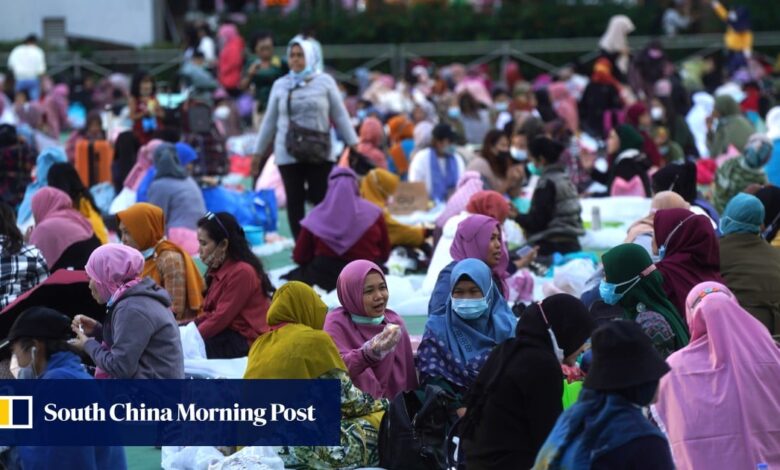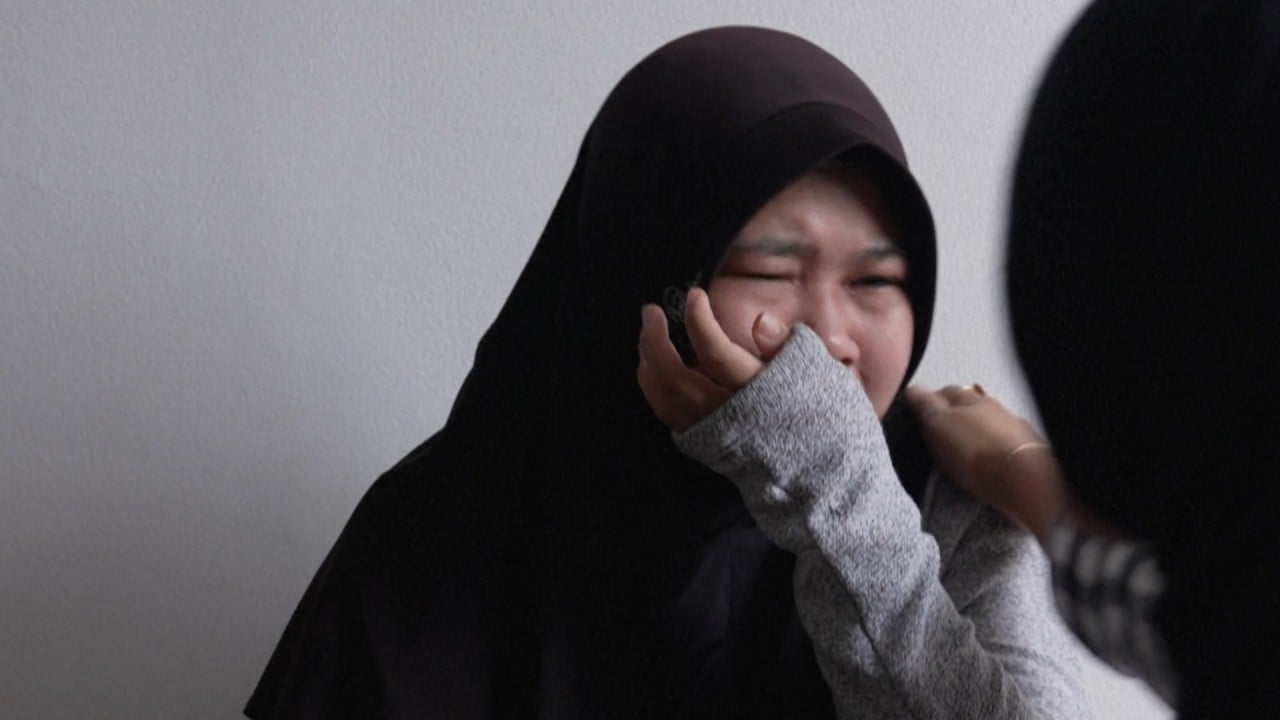How can Hong Kong employers, domestic helpers avoid clashes over religious practices? Industry groups call for candid talks before signing contracts

[ad_1]
The topic entered the public spotlight after a Muslim domestic helper filed a HK$255,000 (US$32,576) discrimination lawsuit against her former employers on Thursday.
The woman accused her employers of requiring her to stop praying or wearing a jilbab, a full-length garment, if she wanted to keep her job.
Unions and employer representatives on Friday said such disputes were common and called for more dialogue between bosses and helpers about their religious practices and how to accommodate each other in the workplace.
Muslim helper sues Hong Kong family for ‘telling her to stop praying, wearing jilbab’
Muslim helper sues Hong Kong family for ‘telling her to stop praying, wearing jilbab’
Sringatin, chairwoman of the Indonesian Migrant Workers’ Union, said employers still held a lot of power over when helpers could pray or what they wore, despite the importance of discussing such topics before contracts were signed.
“We are in a very weak [position of] power with the employer because we are minorities here and some employers don’t really understand our religion and the practice of prayer,” she said.
“[They will think that:] ‘I hired you because I need you to work’, and that praying five times a day, especially for Muslims, is a lot.”
The union chairwoman added that domestic workers often had to accept demands to stop praying or refrain from wearing religious garments to keep their employment records clean for future jobs.
Romlah Rosidah, an Indonesian domestic helper and practising Muslim, said she had worked in Hong Kong for more than 20 years and recalled an employer had demanded her to stop praying or wearing a hijab, a headscarf that covers the hair, neck and ears.
Rosidah said she prayed when her employer, an elderly woman, was either away, asleep or when she could get away with closing the door to her room.
She would also take off her hijab at work and could only wear it outside the flat on her days off, she added.
Rosidah said she needed the job and worked for the elderly woman until her employer died in 2016.
“My hijab and prayers are very important to me, as my parents taught me how to do them as a child and told me they were important as a girl,” she said. “I felt very disappointed that the elderly lady treated me like this, but I didn’t have a choice.”
How a sexually assaulted domestic worker fought for justice across borders
How a sexually assaulted domestic worker fought for justice across borders
Homemaker Marianna Luk, 88, said she had employed a Muslim helper from Indonesia for more than two decades, adding that the recruitment agency involved had discussed requirements such as prayer five times a day and no pork consumption before either signed the contract.
Discussing the recent court case, Luk said the employer must have known about their employee’s religious background before deciding to hire her.
“In no case can the worker or the agency hide that. It is almost the prerequisite of initiating the hiring process,” she said. “You wouldn’t have hired them if you had problems with their religious practice.”
Looking back on her own experiences, Luk said she had gradually come to understand and respect her employee’s religious practices.
Bangladeshi domestic helpers trained in Hong Kong ways ready to move to city
Bangladeshi domestic helpers trained in Hong Kong ways ready to move to city
Thomas Chan Tung-fung, the chairman of the Hong Kong Union of Employment Agencies, agreed that the recent legal dispute suggested a lack of communication before the helper was hired.
“Many employers mistakenly think their homes are their private premises and have complete control over the area, but they forget their homes are also their helpers’ workplaces,” he said.
[ad_2]
Source link






